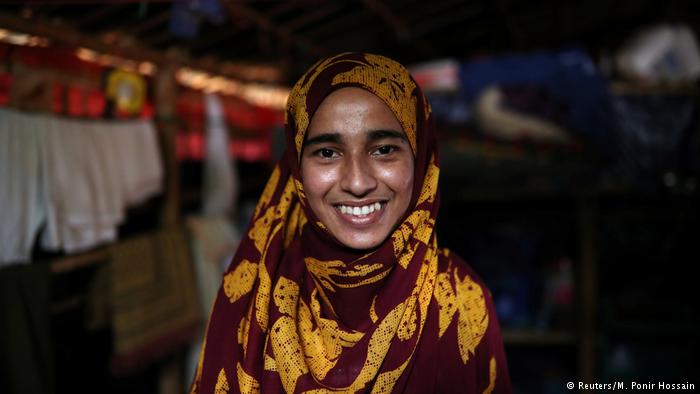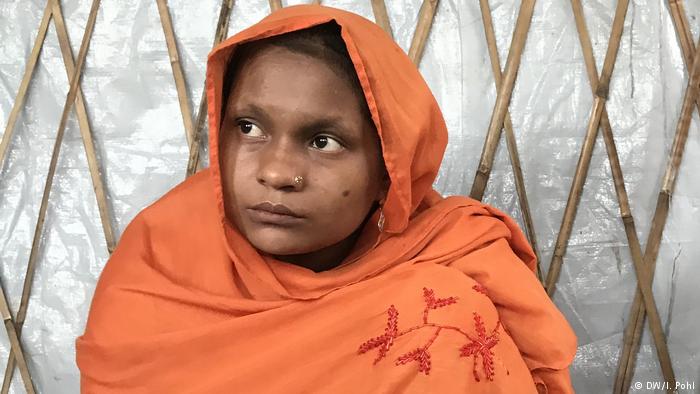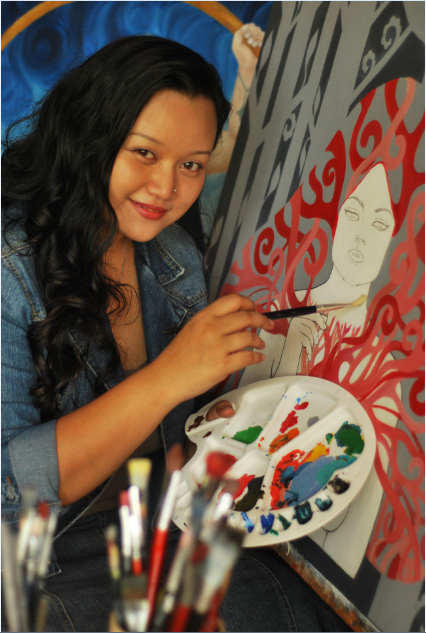The infolady
Infolady – the short form for “information lady” is a revolutionary concept that has provided thousands of Bangladeshi women the much-desired freedom and chance to use modern technologies. The infolady project is one of the winners in the Deutsche Welle Bobs awards for the category, “Global Media Forum Award.” Women in Bangladesh are usually trapped in the vicious cycle of poverty. They hardly receive any support in health-related problems and are not literate enough to improve their chances in life using Information and Communication Technologies (ICTs). An infolady is a real person who delivers information-related support to the underprivileged rural women of Bangladesh at their doorstep. A typical infolady cycles about five to ten kilometers everyday and offers a variety of ICT-based and other services at the doorstep of the rural community she lives in.
An infolady is laden with a range of technological equipment such as, but not limited to – a netbook computer with a webcam, digital camera and mobile phone with internet connectivity and a headphone. She also carries a weighing machine, a device to measure blood pressure, a blood testing kit, a pregnancy test kit, a sugar testing kit and so on. Her distinctive service in the rural communities of Bangladesh helps the members acquire knowledge through the use of modern technology. The infolady is a trusted name among thousands of rural women.
Women of Bangladesh face several barriers towards development: first, they lack in formal education. Second, they are completely in the dark about computers and because of these two factors they have little access to political and social information which could change their lives. The infolady concept not only ensures employment but also boosts empowerment of these women who have been living sub-standard lives. Infolady has also provided enormous support in health services to pregnant mothers and elderly people.
An infolady ensures the fundamental right to health to vulnerable groups through medical advice (such as contraception, safe sex behavior, pre-natal/post-natal care of mothers and babies) and also creates awareness about medical services that are available at the government hospitals. The introduction of the Right to Information Act 2009 accelerated the free flow of information in Bangladesh. The Act smoothed the way for information to reach easily to the end beneficiaries. Nevertheless, people still need an effective interface to get access to such information.
The infolady has proved to be an effective tool to provide life supporting information. There have been many instances where a person came to know about his or her right to services through an Infolady. There have been successful cases where corrupt local representatives were caught depriving citizens of their entitlement. The infolady has made the government and stakeholders more responsive by ensuring delivery of such services to citizens.
Dnet, the planning & implementing agency of Infolady is currently initiating talks with the government and related stakeholders to franchise the model nationally in more places. Bangladesh government is considering the potential for introduction of Infolady in 4,500 Union Parishads of the country where information centers have been set up. Bangladesh Bank (the central bank of Bangladesh) recently allotted a 100 million Takas or 1.2 million dollars to facilitate the availability of low-interest loans for the infoladies. The fund is to be disbursed by the National Bank Limited (NBL), a private bank.
Over the years Infolady has received multiple awards for being a unique model of disseminating information, such as Manthan South Asia Award 2011, Stockholm Challenge Award 2010 and so on. Recently the Infolady project won the prestigious DW Bobs award for the category “Global Media Award (Jury) 2013.”
Author: Aziza Ahmed
Editor: Manasi Gopalakrishnan






